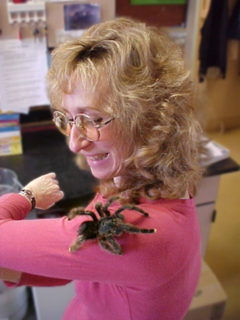A Quote by Marcel Proust
When we have passed a certain age, the soul of the child we were and the souls of the dead from whom we have sprung come to lavish on us their riches and their spells.
Related Quotes
When we have passed a certain age, the soul of the child that we were and the souls of the dead from whom we sprang come and shower upon us their riches and their spells, asking to be allowed to contribute to the new emotions which we feel and in which, erasing their former image, we recast them in an original creation.
...when we abandon visible riches... it is strange goods and not our own that we are leaving. And this is so even if we boast that we acquired them through our own efforts or that they were passed on to us as an inheritance. I say nothing is ours except what is in our hearts, what belongs to our souls, what cannot be taken away by anyone.
For I wondered that others, subject to death, did live, since he whom I loved, as if he should never die, was dead; and I wondered yet more that myself, who was to him a second self, could live, he being dead. Well said one of his friend, "Thou half of my soul"; for I felt that my soul and his soul were "one soul in two bodies": and therefore was my life a horror to me, because I would not live halved. And therefore perchance I feared to die, lest he whom I had much loved should die wholly.
I came from a tradition where souls were a theological reality, not a faith reality. Souls were for saving, not for communing. Souls were for converting and, once they were converted, they were to be left alone. Souls were too mystical, too subjective, too ambiguous, too risky, too... well, you know - New Age-ish.
As for certain lesser faults, we must believe that, before the Final Judgment, there is a purifying fire. He who is truth says that whoever utters blasphemy against the Holy Spirit will be pardoned neither in this age nor in the age to come. From this sentence, we understand that certain offenses can be forgiven in this age, but certain others in the age to come.
This is a world that is much more uncertain than the past. In the past we were certain, we were certain it was us versus the Russians in the past. We were certain, and therefore we had huge nuclear arsenals aimed at each other to keep the peace. That's what we were certain of... You see, even though it's an uncertain world, we're certain of some things. We're certain that even though the "evil empire" may have passed, evil still remains.
Everybody is waiting for the end to come, but what if it already passed us by? What if the final joke of Judgment Day was that it had already come and gone and we were none the wiser? Apocalypse arrives quietly; the chosen are herded off to heaven, and the rest of us, the ones who failed the test, just keep on going, oblivious. Dead already, wandering around long after the gods have stopped keeping score, still optimistic about the future.
It was not the case that one thing morphed into another, child into woman. You remained the person you were before things happened to you. The person you were when you thought a small cut string could determine the course of a year. You also became the person to whom certain things happened. Who passed into the realm where you no longer questioned the notion of being trapped in one form. You took on that form, that identity, hoped for its recognition from others, hoped someone would love it and you.
Souls in heathen darkness lying, where no light has broken through, souls that Jesus bought by dying, whom his soul in travail knew.... Haste, o haste and spread the tidings, let no shore be left untrod, no lost brother's bitter chidings haunt us from the further sod; tell the heathen all the precious truths of God.
Lucifer protests he was never to blame for inducing anyone to sin, and that he’s never had an interest in owning souls: 'They die, and they come here – having transgressed against what they believed to be right – and expect us to fulfill their desire for pain and retribution. I don’t make them come here… I need no souls. And how can anyone own a soul? No, they belong to themselves. They just hate to have to face up to it.





































